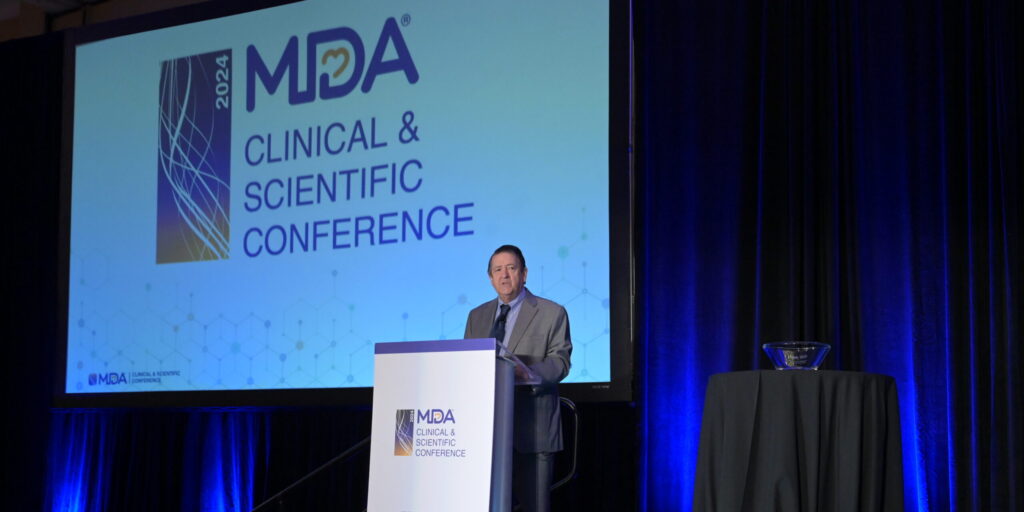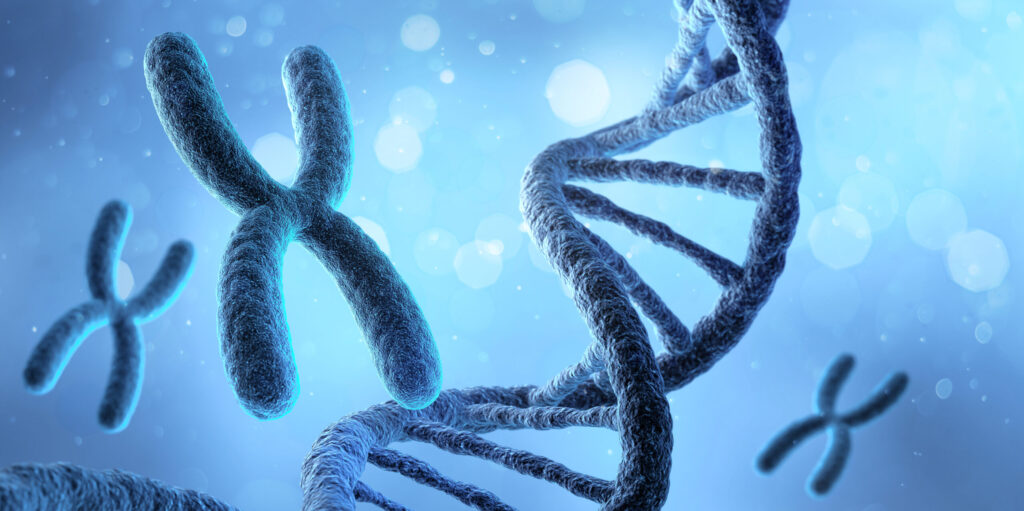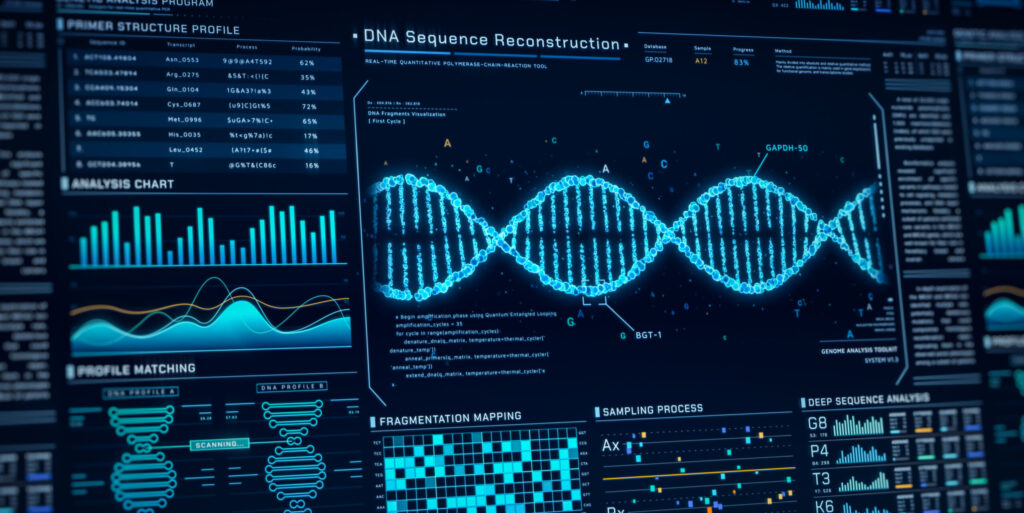
A Q&A Look into the Planning and Upcoming Topics of the 2025 MDA Clinical & Scientific Conference
By MDA Staff | Wednesday, November 6, 2024
The 2025 MDA Clinical & Scientific Conference is coming up! Each year, MDA hosts visionary leaders in neuromuscular disease research and treatment, creating an opportunity for the research and medical communities to share and learn more about groundbreaking studies, innovative advancements in care, and best clinical practices.
This year’s event, to be held in Dallas, Texas, March 16-19, will once again bring together top researchers and practitioners in the neuromuscular disease treatment landscape. Quest Media had the opportunity to speak with the MDA research team to gain insights and information about what attendees can look forward to hearing more about. Below, Dr. Sharon Hesterlee, PhD , Dr. Angela Lek, PhD , Evrim Atas, PhD, and Brian Lin, PhD dive into the broad range of topics in development for what is gearing up to be the best MDA Conference yet!
A Q&A inside look at planning the MDA Clinical & Scientific Conference
First of all, how do you select tracks and topics for each year for the conference?
Dr. Sharon Hesterlee, Chief Research Officer: So that’s a combination of ideas that we have internally as staff from being out in other meetings, talking to investigators, talking to our Research Advisory Committee members. And then we also solicit ideas from MDA teams on the clinical side, because they’re out talking to investigators and families all the time. We follow up each conference with a call for ideas, so that’s a very rich source of ideas. Many of our ideas come from conference attendees themselves, who are invited each year to submit proposals for sessions or talks.
Then we pull all that together, and massage it into our total conference layout. We spend time to make sure we’re balancing indications. We consider what is timely, and we balance the clinical and the research. We consider the pacing of the conference itself – we want to keep it lively, make sure there’s something for everybody, AND we have to look at how we schedule the tracks and the ones that are running parallel to make sure that they’re not interfering with each other so everyone can get to everything they want to get to.
What are you most excited about that will be a focus/topic at conference this year?
Dr. Evrim Atas, Research Portfolio Director: I think muscle regeneration.
Dr. Angela Lek, Vice President of Research: Yes, because it’s continuing the conversation that we began in Quebec this year at the Muscle Regeneration Summit.
Can you tell us more about muscle regeneration, and what that means for the neuromuscular community?
Dr. Sharon Hesterlee: The idea is, muscle regenerates – not quickly, but it happens. It doesn’t turn over as quickly as your skin cells that regenerate in weeks, or red blood cells, for example. These are very short-lived cells. They are produced constantly. Muscle does turn over, but with a much slower pattern. So, we know that muscle can regenerate, but this regenerative ability is diminished with something like muscular dystrophy where you have ongoing muscle damage and inflammation – it overwhelms your ability to regenerate muscle.
Recently, we said we’ve got to revisit this because a lot of these drugs that are coming out now like gene therapy, as promising as it is, are limited is some ways because you can’t put genes into muscle that’s not there. You could back up and say, well, maybe we need to treat infants before they experience a lot of muscle loss, but then if you treated a baby with muscular dystrophy, they’re going to grow a lot more muscle over time. And that new muscle is not going to have the new gene. So, this is a problem we need to work out. We need another strategy to add to the arsenal, whether that’s adding muscle stem cells or helping the body improve it’s own internal capability of regenerating muscle.
It’s an engineering question. We will eventually figure it all out – I have absolute faith. No matter how hard the problem is in medical research, we will figure it out. It just sometimes takes time.
So, we had the meeting this summer. It was a small workshop digging into those questions, and then we’re going to continue that at our conference.
Turning to some of the conditions that the conference will focus on, CMT and myositis are two that will be covered this year. What is emerging in terms of the science and research that is exciting for these conditions?
Dr. Angela Lek: TBD
Are there any conditions that attendees can expect to see session content for that may not have been covered as recently as others?
Dr. Evrim Atas: We’re excited to have TREAT-NMD co-funding the Pompe session, which will focus on the latest research and advances in understanding the pathology of the disease, current treatments, and clinical trials like gene therapy, along with patient perspectives. The OPMD Foundation is also supporting a session on Oculopharyngeal Muscular Dystrophy (OPMD), discussing the most recent advancements in treating the disease.
Also, there’s a lot of excitement around the upcoming session on myotonic dystrophy, particularly because it will focus on the non-muscle aspects of the disease. This session will explore how myotonic dystrophy affects other organs—like cognitive functions, the gastrointestinal system, and even how patients metabolize medications and anesthesia—giving a more comprehensive view of the disease beyond muscle.
What can attendees expect to hear about ALS and Frontotemporal Dementia (FTD)?
Dr. Brian Lin, Research Portfolio Director: We have a full-day agenda dedicated to ALS and FTD at the 2025 MDA conference. We’re going to cover all different areas of ALS and FTD from the genetics and translational models that people are using in preclinical studies. We have a session that’s focused on non-motor neuron cell types because in general in ALS a lot of people focus on motor neurons because those are the ones that are directly affected. But then there are other cell types that are involved as well in mediating the pathology. Then, we will also have a session on AI and brain computer interfaces.
We’ll have speakers who have generated brain computer interfaces that go in and help ALS patients speak, sometimes even in their normal voices. And then the final two afternoon sessions will be on the more therapeutic clinical stage side talking about some treatments that people are testing in the clinics and then also biomarkers to detect ALS hopefully earlier.
2025 MDA Clinical & Scientific Conference Tracks
This is an unprecedented and exciting time in the neuromuscular disease scientific and research fields, and there will be conference programming to cover it all. Below is a description of the tracks the team is currently working to develop programming around:
- Allied Health –This track addresses key aspects of holistic care in neuromuscular disease (NMD), covering nutrition, exercise, and cardio-pulmonary health. Sessions will explore their implications for interdisciplinary care management and include a full-day workshop on coordinating care across changing needs. Attendees will engage with peers to discuss challenges in adopting assistive devices and share resources to enhance patient care.
- Disease Mechanisms and Therapeutics Strategy – This 1.5-day track highlights cutting-edge research such as strategies for regenerating nerve and muscle tissue lost to disease. Other topics covered will explore the latest in genetics research, including genetic modifiers, next-generation therapies, and strategies for correcting large disease genes. Discussion will also cover signaling pathways and fibro-adipogenic progenitors, offering insights into new directions for therapeutic interventions.
- Care Management –This track presents innovative care approaches aimed at improving outcomes for NMD patients, including underrepresented populations. Topics include care transitions, co-managing patients with community providers, and overcoming healthcare policy challenges. Sessions will also discuss preparing future leaders in NMD and fostering diversity, equity, and inclusion among care providers.
- Diagnostic Rolodex – This track will explore unique considerations associated with specific neuromuscular disease diagnoses with focus on Myasthenia Gravis and Myositis. Speakers will discuss up-to-date considerations for care, focusing on clinical management of specific neuromuscular diseases as well as emerging therapies, recent clinical studies, and best practices in disease management.
- Catalyzing Innovation: Strategies for Streamlining Drug Development – This track explores innovative strategies and collaborations shaping drug development and data-sharing platforms. Sessions include advances in rare disease research, advocacy group initiatives, real-world data collection, and novel drug development strategies. Highlights include TREAT-NMD’s expert evaluations for optimizing drug design and the MDA Kickstart program, which bridges academic and commercial drug development for ultra-rare gene therapies. Attendees will also engage in workshops and collaborative discussions designed to foster strategic input and data sharing among Principal Investigators (PIs).
- ALS / FTD –This track covers the latest ALS and FTD research, with a focus on genetics and translational models. Sessions will examine the role of glial cells in neurodegeneration, explore brain-computer interfaces and AI applications, and discuss emerging biomarkers and therapeutic targets shaping future therapies.
- Genetic Medicine –This track highlights the latest approved genetic therapies for DMD and SMA across pediatric and adult populations. Sessions will focus on new approvals, clinical trials, and emerging therapies. Workshops will address gene therapy for experienced sites and financial/therapy reimbursement for families.
- Lab to Life – This track explores the translation of cutting-edge research into real-world NMD treatments. Topics include non-muscle system involvement in myotonic dystrophy, targeted therapies for ultra-rare myopathies, and advancements in CMT clinical trials. Additional sessions will cover therapeutic approaches for oculopharyngeal muscular dystrophy (OPMD) and strategies to optimize outcome measures for clinical interventions.
The 2025 MDA Clinical & Scientific Conference will be held March 16-19, 2025, at the Hilton Anatole in Dallas, Texas. Early bird registration ends on December 31, 2024. Register here.
Next Steps and Useful Resources
- The 2025 MDA Clinical & Scientific Conference will be held March 16-19, 2025, at the Hilton Anatole in Dallas, Texas. Early bird registration ends on December 31, 2024. Register here.
- If you have questions regarding the 2025 MDA Clinical & Scientific Conference, please contact mdaconference@mdausa.org.
- Stay up-to-date on Quest content! Subscribe to Quest Magazine and Newsletter.
Disclaimer: No content on this site should ever be used as a substitute for direct medical advice from your doctor or other qualified clinician.




